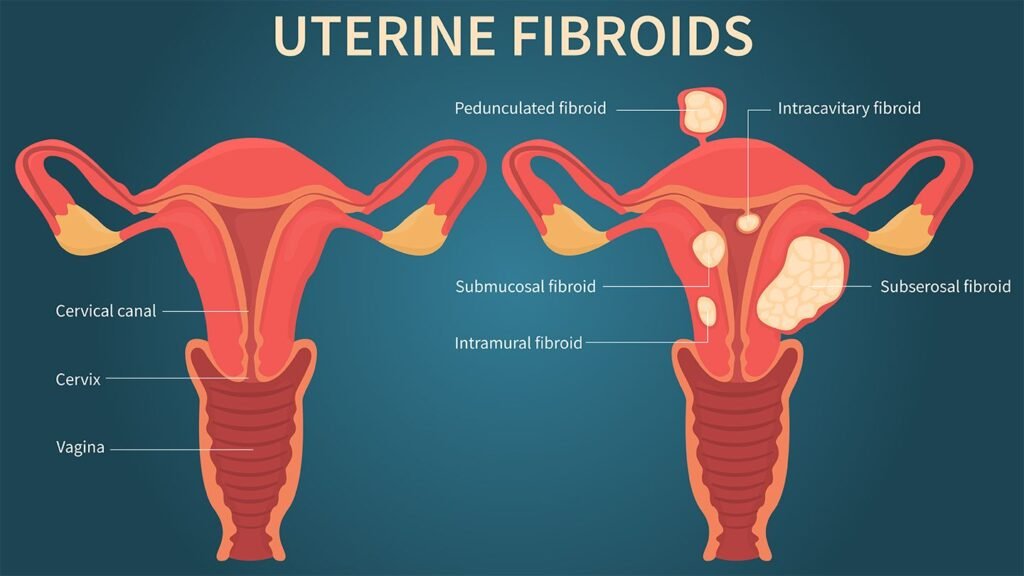
Uterine Fibroid
Fibroids are abnormal growths that develop in or on a women’s uterus. Uterine fibroids are non-cancerous tumors.
They are made up of the muscles and connective tissue from the wall of the uterus. Sometimes these tumors become quite large and cause severe abdominal pain and heavy periods (menses).
Women who are nearing menopause are at the greatest risk of developing fibroids. Uterine fibroids are the most common tumor of the reproductive tract.
Types
Intramural fibroids/Interstitial fibroids – it is the commonest type of fibroid. Develop in the muscular wall of the uterus.
Submucous fibroid – fibroids grow towards the cavity of the uterine wall and it is lined by the endometrium. It causes infertility.
Subserous fibroid – grow towards serosa of the uterus and become pedunculated fibroid (asymptomatic)
Causes
1. Hereditary – if your first-degree relative is suffering from fibroid there is an increased risk that you will develop fibroids too.
2. Obesity
3. Exposure to oral contraceptive pills.
4. Nulliparity (no child) – increased estrogen and less production of progesterone hormone leads to the formation of fibroids.
5. Hormonal disturbances-
Pregnancy increases the production of estrogen and progesterone in your body. Fibroids grow rapidly while you are pregnant.
6. Late menopause
7. Disturbed diet, poor nutrition
Symptoms
* Heavy or prolonged periods
*Pelvic pain
*Frequent urination
* Lower back pain
*Pain during intercourse
* Difficulty getting pregnant
*Bleeding between periods
*Excessive or painful bleeding during menstruation
*Bloating in the lower abdomen
*Chronic vaginal discharge
*Inability to completely empty bladder
*Constipation
*Anemia because of heavy bleeding during menstruation
* Weakness, tiredness
Diagnosis
1. Ultrasonography
2. Magnetic resonance imaging
3. Ct-scan
4. Hysteroscopy
5. Hysterosalpingography 6. Laparoscopy
Prevention
Regular exercise may prevent fibroid
Reduce stress and anxiety by practicing meditation and
deep breathing
Eat well and maintain a diet
Eating fresh fruits and vegetables
Avoid self medications
Manage weight (maintain normal BMI)
Uterine Fibroid Homeopathic Medicine and Treatment in Zirakpur
At 247homeopathy Clinic we believe in needle work treatment according to mental and physical health.
Many factors contribute to the selection of medicines like stress, depression, hormonal disturbance, etc. Remedies are well selected by a team of doctors.
Irregularity of menses, heavy bleeding can completely cure with homoeopathic medicines.
Improving the efficiency of the uterus is the foremost thing and parallel symptoms like heavy bleeding, pain, cramps, anemia with immediate effect of medicine intake.
The most beneficial part of homoeopathic treatment is it cure the patient as a whole.
There are no side effects of homeopathic medicine, but you should take medicine under the doctors advice only.